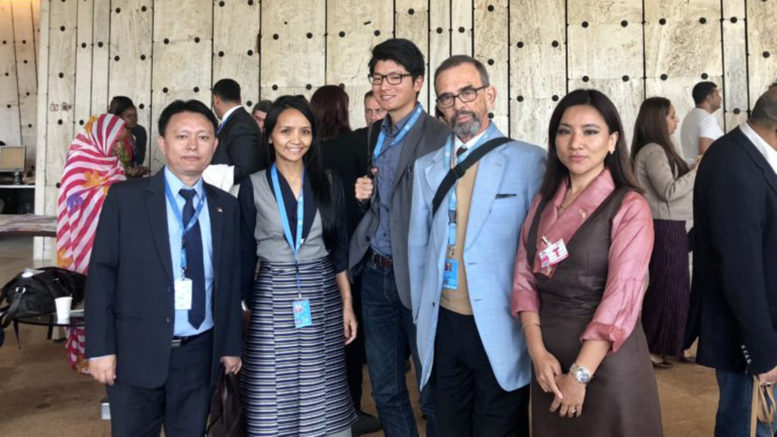Geneva: The human rights situation in Tibet under the Chinese occupation was yet again spotlighted this afternoon at the ongoing 39th session of the UN Human Rights Council.
Society for Threatened Peoples, the international group protecting minority people who are threatened by an oppressive regime, organized a side event titled “Human Rights in China-Seeking Solutions: The Case of Tibet Autonomous Region and the areas where Tibetan live”.
The event featured two prominent speakers; Dhardon Sharling, Secretary for Information, Department of Information and International Relations and Taisuke Komatsu from International Movement Against All Forms of Discrimination and Racism (IMADR). Adrien-Claude Zoller, President of Geneva for Human Rights, moderated the session.
Highlighting the fact that China’s push for human rights with Chinese characteristics, which places development above human rights, is not only a threat to Tibet but also to the norms underpinning the UN human rights system, Secretary Dhardon Sharling said that China’s 3rd cycle of Universal Periodic Review due on 6th November this year presents a good opportunity to highlight the human rights situation inside Tibet and strengthen advocacy for Tibet.
She said that instead of naming and shaming China, “we are committed to requesting member States to engage with China and make China accountable” under the UN Human Rights system. Tibetans’ main goal is “to ensure that the human rights situation in Tibet remains atop the UPR agenda. UN agenda in the long run as redressing the rights violations in Tibet has the potential to create change for a larger human rights situation in China, added Secretary Dhardon.

Side event in progress. Photo/OOT Geneva
“China has failed to implement even the simplest of provisions to protect Tibetans’ rights including the recommendations accepted in both previous UPR cycles. Furthermore, China’s tactics to silence criticism of its behaviour have been even more aggressive, so we need to press governments harder and ensure that they robustly scrutinize China in this UPR,” concluded Secretary Dhardon.
Citing China’s attempt to undermine the civil society efforts at the UN, Taisuke Komatsu warned “hostility and denial attitude” from China in the upcoming UPR. He further elaborated the recent concluding observation of UN Committee on Elimination of Racial Discrimination (CERD) on China.
Both the panellists jointly called on UN member states and civil society to actively participate in upcoming China’s third cycle of Universal Periodic Review (UPR), and urged the member states to critically and constructively engage with China in upholding universal human rights protection and promotion mechanisms.
Report filed by Office of Tibet, Geneva

